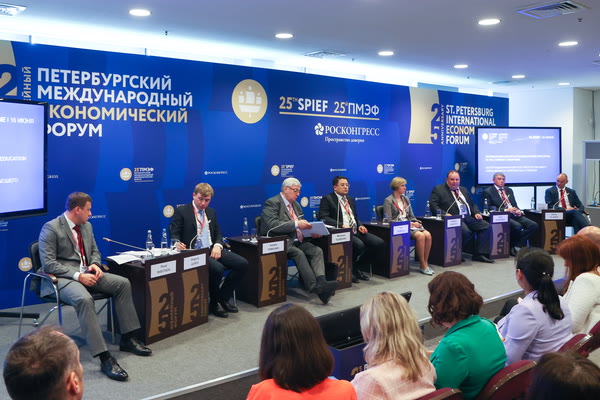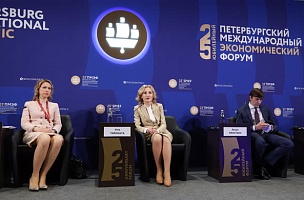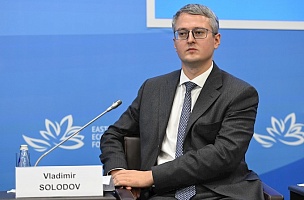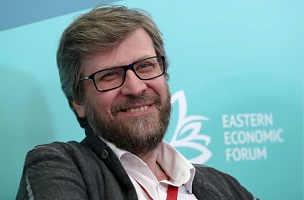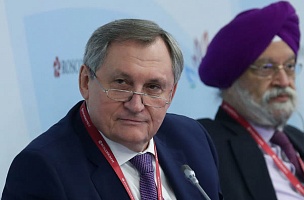Key conclusions
Leading Domestic Universities Have not Abandoned Their International Outlook
“It is a global standard for universities to be international by nature. And regardless of what may happen geopolitically or as a result of changes taking place internationally, we need to adhere to this standard and, where necessary, look for new partners and seek out new methods of communication with our colleagues abroad. I would not like to be overly dramatic about the situation we are facing with international cooperation,” Anatoly Torkunov, Rector, MGIMO University.
“At the moment – and it’s been four months since the start of the special military operation – we don't see any kind of reduction to the quota happening. Students that were showing an interest last year and registering and getting ready to come study – there are 23,000 foreign students we accepted – haven’t gone away or changed their minds,” Pavel Shevtsov, Deputy Head, Federal Agency for the Commonwealth of Independent States Affairs, Compatriots Living Abroad, and International Humanitarian Cooperation (Rossotrudnichestvo).
“Western countries – the ones we are now calling ‘unfriendly’ – continue to work together with us, just at a slightly less intensive rate. As for friendly countries, projects are ongoing and continue to expand and develop,” Stanislav Prokofiev, Rector, Financial University under the Government of the Russian Federation.
Demand for a Russian Education Remains High
“What is the attitude towards Russian education right now? It’s great! We’re carrying out surveys, and every second participant says they are interested in studying in Russia, they want to study science, or they want to be involved in the economy,” Irina Karelina, Executive Director, Association of Global Universities.
An Attractive Price and Some Other Less Obvious Factors
“According to the statistics we have, we get 3,000–3,500 students from Egypt every year who want to study. We’ve begun to look at why everyone wants to study in Russia. Firstly, the cost of education is lower than ours, and that includes study at private universities. Secondly, you don’t take into account our secondary school diploma grades,” Mohamed Elsergani, Cultural Attache, Director of Cultural Bureau of the Arab Republic of Egypt in Moscow Embassy.
“Strange as it may seem, business and management are the two most sought-after subjects among potential students. I can understand why they come to study engineering and technology – after all, the first spaceship and the first flight into space were Russian. But why business and management? Here’s what they tell us: Russia is an interesting country for business, so we want to be successful in Russia and get a Russian education,” Irina Karelina, Executive Director, Association of Global Universities.
Russians Will Continue to Publish in Leading International Scientific Journals
“We’ve learned to publish with scientists from friendly countries who are often more active and interesting than those from unfriendly countries. China is our most important partner for high-level publications. Saudi Arabia is in the top ten, would you believe it? Why have we only started now?! India is involved, and so is Egypt. There are teams of young scientists there that are very enterprising and are doing everything they can to achieve something. The Old World, unfortunately, and the West are already bogged down – they don’t need much. They are complacent. But here, they are moving forward, and we are going to work together with them. A very high proportion of high-level publications – we have almost half, even a bit more – are filled with work by Russian scientists without collaboration. This means that we’ve learned how to publish. We are allowed to publish in high-level journals even without collaboration. And they will continue to let us,” Victor Koksharov, Rector, Ural Federal University named after the first President of Russia B.N. Yeltsin.
PROBLEMS
Some Countries are Forcing their Students to Leave Russia Even if They don’t Want to
“European students didn’t want to leave. I had an Italian girl in my office crying that she didn’t want to leave, but that she was being forced to... Some of them decided to just stay. By the way, 60% of the kids who were encouraged to leave after the SWO started didn’t and will be receiving their diplomas soon. So, I think the outlook is good. We just need to work on it and look at the whole story in a different way,” Anatoly Torkunov, Rector, MGIMO University.
“A key issue is that of an international settlement system and access to financial resources for students. It’s the reason universities have had to spend their own money on support – food, accommodation, deferrals and so on. It's a problem that needs to be resolved, and it is definitely a federal one,” Dmitriy Gluzhko, Acting Rector, Ogarev Mordovia State University.
“We have shown foreign nationals that in any case, if you are in Russia, we will ensure your security in every way,” Grigoriy Gurov, Deputy Minister of Science and Higher Education of the Russian Federation.
Foreigners Need to Learn Russian and Adapt
“I would urge our universities to open branches of their preparatory faculties abroad. [...] If they know Russian, they will be even more willing to come and study our programmes,” Victor Koksharov, Rector, Ural Federal University named after the first President of Russia B.N. Yeltsin.
“The question of sub-faculties abroad is very important. When students arrive, the first issue is the Russian language, and it’s also very important to help foreign students adapt socially and culturally. So that it doesn’t turn into a situation where they come and eventually have to deal with our law enforcement agencies,” Pavel Shevtsov, Deputy Head, Federal Agency for the Commonwealth of Independent States Affairs, Compatriots Living Abroad, and International Humanitarian Cooperation (Rossotrudnichestvo).
“Where can we practice, you tell me!? Students need to practise, to get to know your culture, to learn a lot of things about Russia. It’s important!” Mohamed Elsergani, Cultural Attache, Director of Cultural Bureau of the Arab Republic of Egypt in Moscow Embassy.
“Maybe – if we want to prepare potential foreign applicants to deal with the language and the culture – we should consider creating, along with the existing university sub-faculties, some kind of nationwide organization – like a Goethe Institute, for example – which could build up a training system according to unified curricula. And to create a unified examination system,” Stanislav Prokofiev, Rector, Financial University under the Government of the Russian Federation.
“I often have to explain that promoting the Russian language – and universities are definitely doing a great job; many have great Russian as a Foreign Language and Russian Studies departments – is a whole package that develops trade and economic relations and science. But if you’re only working in one place, it probably won’t be enough to get the job done,” Pavel Shevtsov, Deputy Head, Federal Agency for the Commonwealth of Independent States Affairs, Compatriots Living Abroad, and International Humanitarian Cooperation (Rossotrudnichestvo).
SOLUTIONS
“The budget is like a pill, but it shouldn’t be turned into a drug. We have to use the budget and admission control numbers or quotas to create opportunities to make ourselves interesting to foreign students so that they will come and study with us. How can we accomplish this? Kindness, hospitality, the way we treat students from abroad as if they were our own! There is the saying that Russia doesn’t leave its own behind. The students who study with us - they are ours, and we won’t leave them behind either,” Dmitriy Gluzhko, Acting Rector, Ogarev Mordovia State University.
“The position initially agreed to by everyone is that we are not cutting any ties on our part. In other words, we are doing everything we can to preserve them, and we’ve succeeded,” Grigoriy Gurov, Deputy Minister of Science and Higher Education of the Russian Federation.
“There are quite a few – I know there are quite a few at Vyshka, and from other colleagues – professors and lecturers from unfriendly foreign countries who want to work and work well. And we are interested in working with them,” Anatoly Torkunov, Rector, MGIMO University.
“There is no sense of things being hopeless. We are fairly optimistic when we think about what the future holds. I think this is a sign that Russian higher education will develop on the whole, and interaction with foreign countries will also move in the direction we want it to. I think that in the near future our interaction with foreign countries in education will be positive,” Pavel Shevtsov, Deputy Head, Federal Agency for the Commonwealth of Independent States Affairs, Compatriots Living Abroad, and International Humanitarian Cooperation (Rossotrudnichestvo).
Grants and Scholarships as an Alternative to Quotas
“There is talk about moving away from a quota system to grants and maybe making it a little less but becoming more up-to-date on the educational services market on the ‘other’ side. People often complain that when our centre starts to offer educational services on a par with foreign countries – in the Commonwealth of Independent States - our competitors often come out looking more attractive because of the grants they provide in place of our quota system. The lack of tools available to attract people is often a disadvantage. That said, the challenge is to attract talented young people,” Pavel Shevtsov, Deputy Head, Federal Agency for the Commonwealth of Independent States Affairs, Compatriots Living Abroad, and International Humanitarian Cooperation (Rossotrudnichestvo).
“It would be unthinkable to have education without science, and so it’s very important - especially in these trying times - to respect national priorities in terms of research areas and headhunting for the most talented young researchers to attract them to do masters degrees and doctorates and post-graduate studies. [...] We need to attract more foreign academics to study with us. That’s why we need to think through a model for attracting scientists with grants and scholarships into various scientific fields. It’s a system that has worked well for a long time in a number of different countries all over the world. I think it’s time to start thinking about creating something similar in Russia,” Stanislav Prokofiev, Rector, Financial University under the Government of the Russian Federation.


